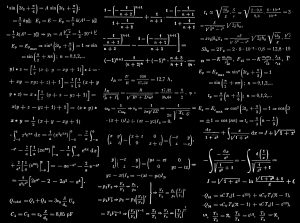Math Challenge Workbooks: How to Build Critical Thinking

Introduction
Do you ever find yourself wondering how you can help your child develop critical thinking skills? As a parent, you want your child to excel academically and be equipped with important life skills. Mathematics is a subject that not only requires proficiency in calculations but also cultivates critical thinking abilities. This is where math challenge workbooks come into play. These workbooks go beyond rote calculation and encourage children to analyze, reason, and solve complex problems creatively and logically. In this article, we will explore the power of math challenge workbooks in building critical thinking skills in children, and how they complement Abacus learning.
The Importance of Critical Thinking in Mathematics
Critical thinking is an essential skill for success in mathematics. It involves analyzing information, evaluating options, and making decisions based on evidence. By developing critical thinking skills, children can approach mathematical problems from multiple angles and develop flexible thinking strategies. They learn to think critically about patterns, relationships, and mathematical concepts. Through math challenge workbooks, children are exposed to non-routine problem-solving scenarios that require them to apply mathematical concepts in unfamiliar contexts. This fosters both convergent and divergent thinking, enabling them to think creatively and logically.
How Math Challenge Workbooks Build Critical Thinking
Math challenge workbooks are designed to cultivate critical thinking abilities in children. These workbooks present students with puzzles, challenge problems, and non-routine scenarios that require them to apply mathematical concepts in creative ways. Here’s how math challenge workbooks build critical thinking:
a) Non-Routine Problem Solving: Math challenge workbooks go beyond routine calculations and present students with problems that require them to think critically and apply mathematical concepts in unfamiliar contexts. This helps them develop problem-solving skills and approach challenges with flexible thinking.
b) Emphasis on Reasoning and Analysis: The problems in math challenge workbooks are designed to make students analyze information, evaluate options, and make decisions based on evidence. This process mirrors real-world scenarios and encourages logical reasoning and decision-making skills.
c) Creative Mathematics: Workbooks like the Math Challenge series ask students to visualize and represent problems in imaginative ways. They may involve using patterns in tiles or blocks to build spatial sense and confidence in problem-solving. By engaging students’ creativity, these workbooks enhance their critical thinking abilities.
d) Stepwise Learning Cycle: Effective math challenge workbooks guide students through a cycle of learning concepts, exploring problem types, and using creativity to solve them. This structured approach helps in gradually building deeper understanding and critical thinking skills.
e) Real-World Application: Many math challenge workbooks incorporate real-life scenarios, encouraging students to apply math to authentic problems. This strengthens their ability to transfer skills beyond the classroom and understand the relevance of mathematics in everyday life.
Key Features of Effective Math Challenge Workbooks
Effective math challenge workbooks share common features that contribute to building critical thinking skills in children. Here are some key features of these workbooks:
a) Non-routine, Open-ended Problems: Effective workbooks present students with non-routine problems that have multiple possible solutions. This encourages creative and analytical thinking, as students explore different approaches to solve the problem.
b) Puzzles and Mind Benders: Math challenge workbooks often include puzzles and mind benders that develop pattern recognition and logical reasoning skills. These activities challenge students to think critically and find solutions using deductive reasoning.
c) Visual and Spatial Challenges: Some workbooks incorporate visual and spatial challenges to enhance students’ spatial sense and visualization abilities. These challenges require students to think in three dimensions and understand the relationships between shapes and objects.
d) Stepwise Concept Exploration: Effective workbooks guide students through a stepwise exploration of mathematical concepts. They provide a structured approach, starting with simpler problems and gradually increasing the complexity. This builds confidence and develops systematic problem-solving skills.
e) Real-World Scenarios: Workbooks that include real-world scenarios help students understand the practical application of mathematical concepts. By solving problems related to real-life situations, students develop critical thinking skills that can be applied outside the classroom.
Tips for Using Math Challenge Workbooks Effectively
To make the most of math challenge workbooks in developing critical thinking skills, here are some tips for parents and educators:
a) Encourage Exploration: Allow students to try different strategies and learn from their mistakes. Focus on the process rather than solely on correct answers. Encourage them to explore different approaches and discuss the reasoning behind their solutions.
b) Discuss Solutions: Promote discussion about various approaches to solving problems. Encourage students to articulate their thought processes and explain why they chose a particular strategy. This helps develop communication skills and enables students to learn from one another.
c) Integrate with Curriculum: Use math challenge workbooks as a supplement to regular math lessons to reinforce and extend learning. Align the topics covered in the workbooks with the curriculum to ensure a seamless integration of critical thinking skills development.
d) Start Early: Introducing critical thinking challenges at a young age lays a strong foundation for future problem-solving and analytical skills. Early exposure to math challenge workbooks helps children develop a mindset that embraces challenges and values creative thinking.
e) Make It Fun: Choose math challenge workbooks with engaging illustrations, puzzles, and games. This maintains children’s motivation and enjoyment while they develop critical thinking skills. Incorporate interactive activities that make learning a fun and exciting experience.
How Math Challenge Workbooks Build Critical Thinking
|
Key Feature |
How It Helps |
Example |
|---|---|---|
|
Non-Routine Problems |
Encourages creative problem-solving and multiple solution approaches. |
“If 3 cats catch 3 mice in 3 minutes, how long for 100 cats to catch 100 mice?” |
|
Puzzles & Brainteasers |
Sharpens logical reasoning and pattern recognition. |
Sudoku, logic grids, or number sequence challenges. |
|
Visual/Spatial Challenges |
Improves geometry skills and mental visualization. |
“How many cubes are hidden in this 3D diagram?” |
|
Stepwise Concept Exploration |
Builds systematic thinking and reduces frustration. |
Breaking complex problems into smaller, manageable steps. |
|
Real-World Scenarios |
Connects math to practical life, enhancing relevance and retention. |
“Calculate the best phone plan based on data usage and cost.” |
|
Collaborative Tasks |
Promotes teamwork, communication, and diverse problem-solving perspectives. |
Group projects like designing a budget for a fictional business. |
Abacus Learning and Critical Thinking
Abacus learning complements the development of critical thinking skills in children. The Abacus tool and visualization techniques used in Abacus learning enhance spatial sense, concentration, and memory. The structured approach of Abacus learning fosters logical reasoning and problem-solving abilities. By combining Abacus learning with math challenge workbooks, children can develop a strong foundation in both calculation skills and critical thinking abilities.
Summing Up
Math challenge workbooks play a significant role in building critical thinking skills in children. They go beyond routine calculations, fostering creative and analytical thinking. By using these workbooks, children can develop problem-solving skills, logical reasoning abilities, and a deep understanding of mathematical concepts. When combined with Abacus learning, math challenge workbooks create a comprehensive approach to nurturing critical thinking in children. So, why wait? Embrace the power of math challenge workbooks and Abacus learning to unlock your child’s full potential in mathematics and beyond!
SIP Abacus India offers world-class skill development programs that aim to unlock the mental potential of children through fun learning methodologies. Their programs focus on developing skills in mathematics and overall development. The SIP Abacus program uses the Abacus tool and visualization techniques to teach children mental math skills from ages 6-12. The curriculum is divided into Junior, Foundation, Advanced, and Grand Master modules with structured levels and a proven track record. SIP Abacus classes are offline, with small class sizes and interactive teaching methods. Studies show that children who complete the SIP Abacus program perform significantly better in math and reading at school, often 3-4 years ahead of their peers within 2 years of joining. The program’s unique approach of developing both sides of the brain has proven effective in nurturing children’s academic and overall growth.



